SUMMARY
This is AI generated summarization, which may have errors. For context, always refer to the full article.
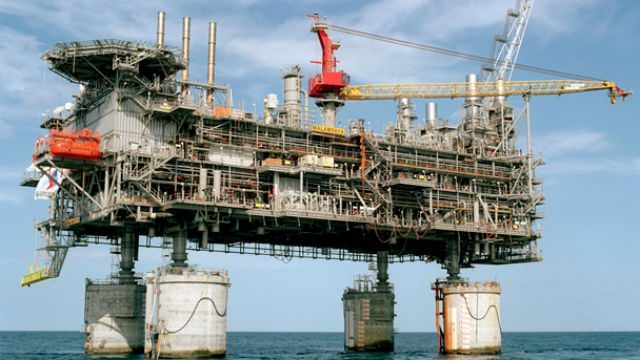
MANILA, Philippines – Tensions have flared up between Prime Infrastructure Capital’s chairman, Enrique Razon Jr., and former Philippine National Oil Company (PNOC) president Eduardo Mañalac as the two engaged in a public dispute over the 15-year extension of the Malampaya gas project.
In a strongly worded email to reporters, the Filipino tycoon lashed out at Mañalac following his criticism of the project’s extension in a recent television interview with ABS-CBN. Mañalac questioned the legality of the contract renewal.
“While we celebrate the Malampaya contract renewal as a critical step to avert a power crisis, Mr. Eduardo Mañalac is using this development to push his own agenda, making unsubstantiated claims against the SC 38 (Service Contract 38) Consortium,” Razon stated.
Mañalac had suggested that Prime Infra was a “bogus oil company” that was awarded the contract in violation of Presidential Decree 87 and the terms of Service Contract 38. He challenged the Department of Energy (DOE) to present documents showing that Prime Infra had met the technical qualifications before becoming a Service Contractor.
In a vigorous response, Razon singled out Mañalac’s past involvement in the controversial Joint Marine Seismic Undertaking (JMSU) of 2005. This tripartite agreement, brokered between China National Offshore Oil Corp. (CNOOC), Vietnam Oil and Gas Corp. (PetroVietnam), and the PNOC, allowed for seismic work on a 142,886-square-kilometer area in the West Philippine Sea. Mañalac had signed the agreements in his capacity as the president and CEO of PNOC.
“It is appalling to hear Mr. Mañalac argue for the supposed ‘losses for the government or the Filipino people’ when we know that he is the same character who brokered the tripartite agreement for JMSU among the Philippines, Vietnam, and China, essentially compromising Philippine territory by allowing the two countries to explore our natural resources without government supervision,” Razon added.
The Supreme Court struck down the JMSU deal in January 2023, citing a breach of Section 2, Article 12 of the 1987 Constitution.
Mañalac has yet to address Razon’s points about the JMSU as of posting.
Mañalac, however, questioned the technical qualifications of Razon’s Prime Infra. He emphasized the stark difference between Shell, the original service contractor, and Prime Infra.
“The original Service Contractor, Shell, which Prime Infra replaced, is a vertically integrated company in all facets of oil exploration and production, and has been in the business for decades,” Mañalac said.
Highlighting a lack of evidence for Prime Infra’s involvement in oil and gas exploration and production, Mañalac claimed, “No legitimate research yields any history or information regarding Prime Infra’s claims that it is technically qualified to explore, drill for, and produce oil or gas.”
Mañalac further rebuffed Razon’s claims about potential government losses, pointing to the P100 million daily average that Razon and business tycoon Dennis Uy are allegedly gaining from the Malampaya profits. He accused them of depriving the Filipino people of the full bounty of their own natural resources.
“These are losses because, the government (as other governments in oil producing countries have done), should have taken back the interests that Chevron and Shell were relinquishing in order for the country and its people to enjoy the full bounty of the natural resources that we own,” he said.
Razon-led consortium qualified, says DOE
In a press conference on Tuesday, May 16, Energy Secretary Raphael Lotilla defended the contract with the Razon-led consortium, Prime Energy Resources Development B.V. (Prime Energy), saying the natural gas exploration and development company had proven it was qualified. Prime Energy is a subsidiary of Prime Infra.
“The operator and its personnel have shown its technical competence over the last six months by managing the decline in the gas supply and undertaking successfully a maintenance activity. This confirms the findings of the DOE last year on the operator’s technical, financial and legal qualifications,” he said.
Lotilla added that the government does not have the funds for such a capital-intensive endeavor as gas exploration and development.
The DOE also said in a statement that the service contract extension “will allow for the continued production of the Malampaya gas field, ensuring that the remaining gas reserves are further explored and utilized.”
It said that the Razon-led consortium is required to drill at least two deep water wells from 2024 to 2029 “gearing towards unlocking the potential both in the existing gas field and nearby prospect areas to provide incremental production.”
The Malampaya Gas Field is an essential asset for the Philippines and has been the primary source of feedstock for three power plants – the Santa Rita, San Lorenzo, and Ilijan plants – which together have a combined capacity of approximately 3,200 megawatts. Malampaya powers around 20% of Luzon’s electricity requirements.
Since its inception in 2001 through early 2020, the Malampaya gas project generated over $10 billion in revenues for the Philippine government. It also reduces oil imports by more than 800,000 barrels per year, which in turn saves the country an estimated $2.5 billion in annual import costs.
The energy department has been actively exploring new energy resources to offset the expected decline in production from the Malampaya field, including renewable energy sources and potential new offshore gas fields. – Rappler.com
Add a comment
How does this make you feel?
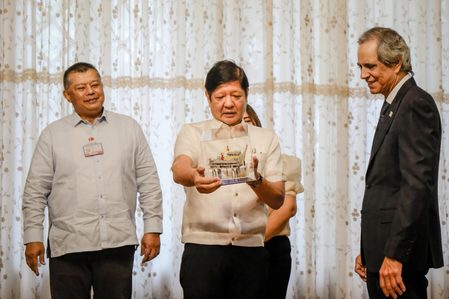
![[ANALYSIS] Reasserting sea control over Reed Bank: Averting a power crisis](https://www.rappler.com/tachyon/2023/05/tl-reed-bank.jpg?fit=449%2C360)
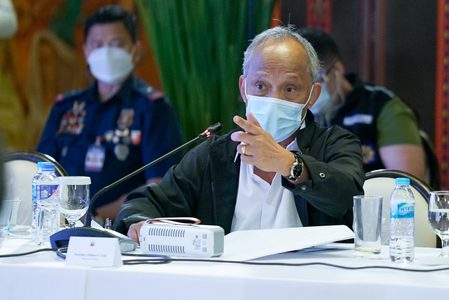



![[ANALYSIS] Why do we pay higher power rates when we have power outages?](https://www.rappler.com/tachyon/2024/07/tl-higher-power-rates-higher-power-outages.jpg?resize=257%2C257&crop=401px%2C0px%2C1080px%2C1080px)




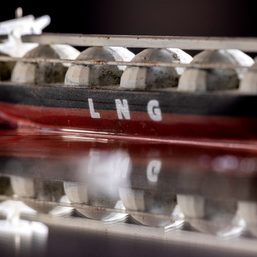
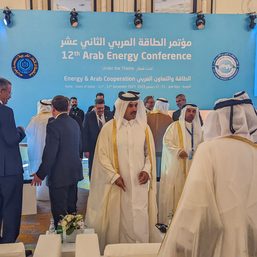
There are no comments yet. Add your comment to start the conversation.